Resistance or diplomacy? Iranians face crucial questions on 41st anniversary of Islamic Revolution
Tens of thousand took to the streets of Tehran on Tuesday.
TEHRAN -- Tens of thousands of Iranians attended a pro-system demonstration on the streets of Tehran and other cities across the country to celebrate the 41st anniversary of the Islamic Revolution.
The demonstrations marked an emerging a gap between the country and the United States with heightened tensions between the two countries.
Slogans mostly reflected recent speeches given by Iranian Supreme Leader Ayatollah Ali Khamenei about the pointlessness of any negotiation with the U.S. or others over the country's nuclear and missile programs to solve economic problems of the Islamic Republic.
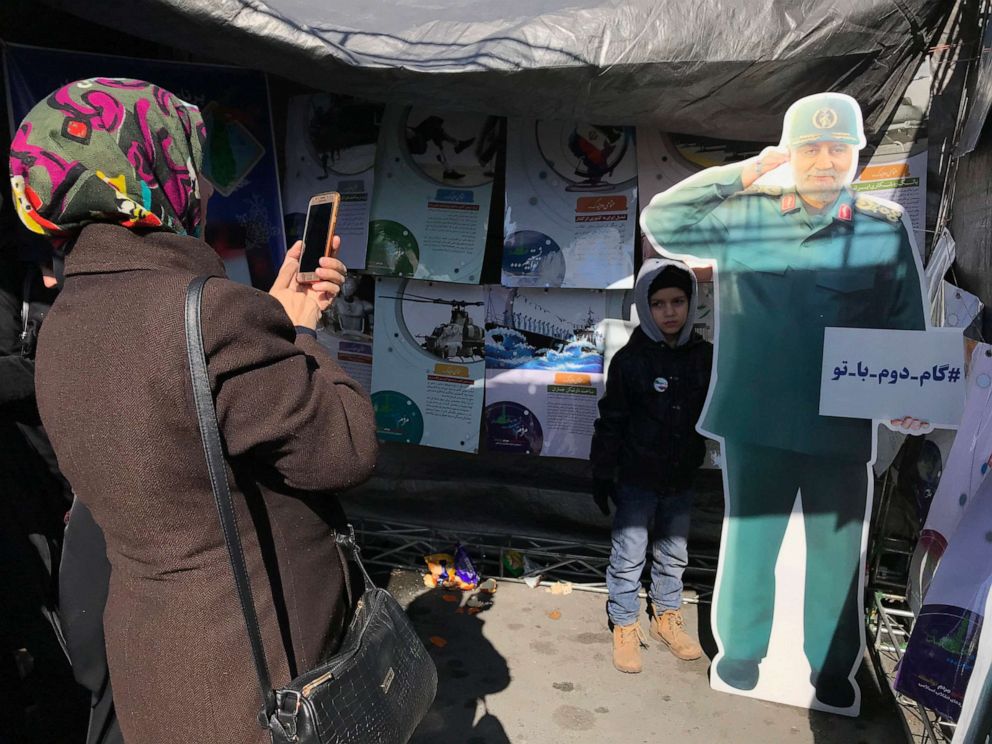
Signs carried similar messages from "down with America" and "Down with Israel" to "we resist forever" and "the blood in our vein, [is a] gift to our leader."
"I am here to shout 'down with the U.S.' so loud that our enemies can hear it," said 18-year old Ahmad, a high school student who did not want his last name published.
He came to the demonstration along with a group of friends from his mosque who had all painted their cheeks in Iran's green-white-red flag colors.
"I was not even born when the revolution toppled the former regime, but I have read how America treated our country before the revolution, and I can see how they treat us now," he said. "We shall never re-negotiate with the U.S. We have to resist America's bully."
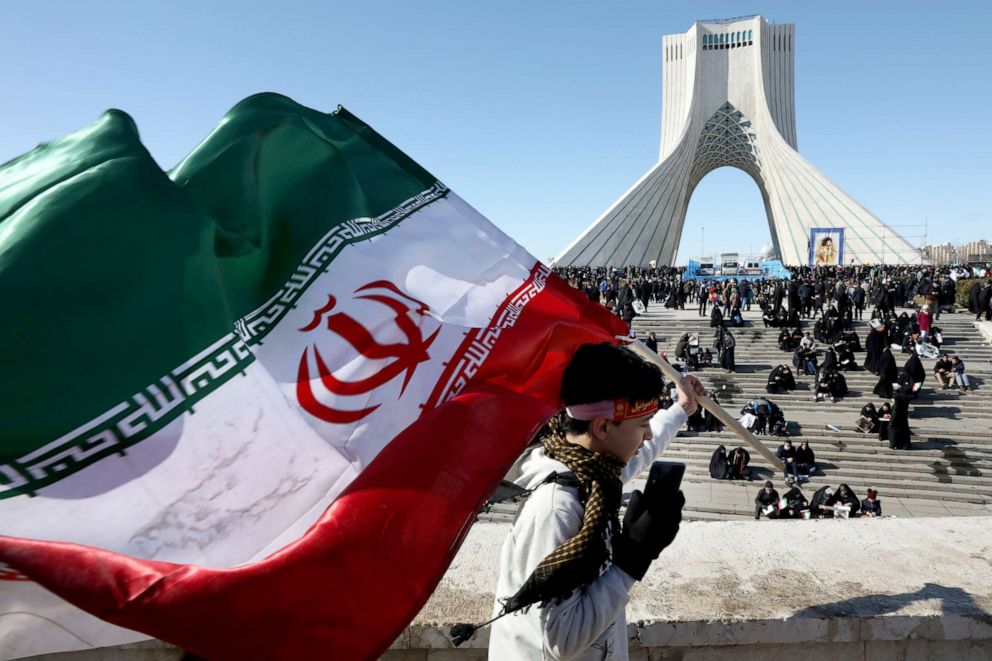
As conservative parties have gained more power in the past few months and continued denying any need to establish or cement ties with the West, Iranian President Hassan Rouhani -- who won people's trust six years ago by promising a better future and flourishing economy via good relation with other countries -- is losing power and public support as his government has failed to live up to its promises.
"Resistance or diplomacy? It is a wrong 'either/or' [statement]. We need both diplomacy and resistance," said Rouhani in his speech at the rally, in an attempt to appease both conservatives and also those who have hope for the betterment of the situation among reformists.
"Whenever we have stuck together, we defeated America. … This revolution is not exclusively owned by any party or person. It belongs to everyone," the president added.
But his words did not seem to work on Ahmad's mosque rallying team.
"Negotiating with America was a big mistake that our president made. We should have not done that in the first place," said Ahmad's friend, Reza, who also talked on condition of anonymity.
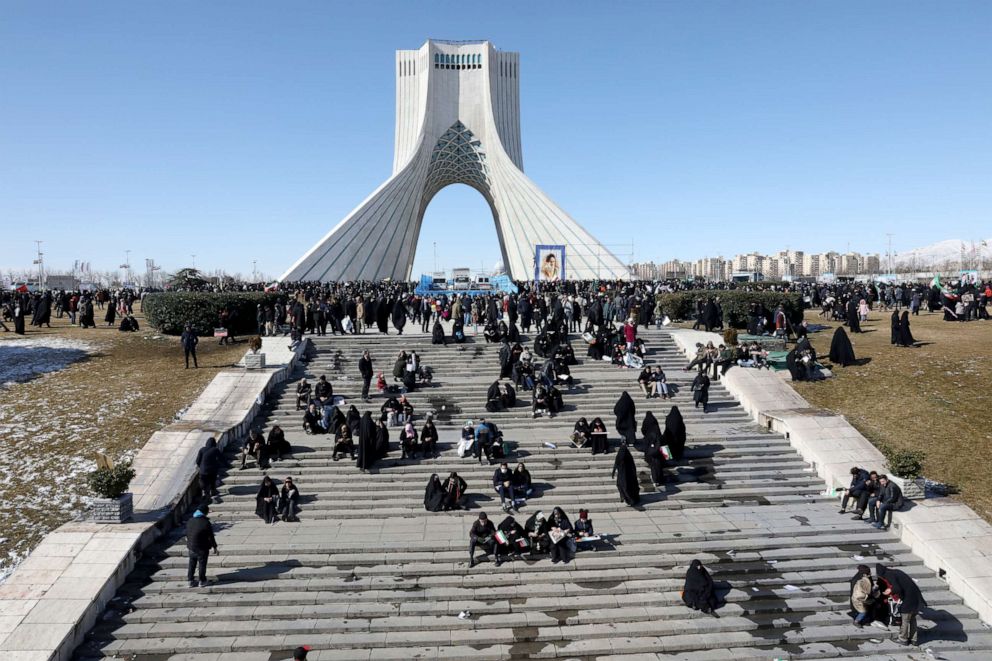
"I am worried about my future and if I can find a job. I do not want to keep studying and I end up being jobless at the end," he added.
Still, he insisted the path to a booming job market is not through compromising the nuclear program with the West.
Reza and those who agree with him have had more opportunities to oppose Rouhani's foreign policy after President Donald Trump pulled out of the nuclear deal that Iran and six world powers had signed in 2015.
According to this deal, known as the Joint Comprehensive Plan of Action (JCPOA), Iran agreed to restrain its nuclear activities in exchange for lifted sanctions.
Despite international bodies' confirmation of Iran's commitment to the deal, Trump put up new struggles by withdrawing from the pact and resuming sanctions on the Islamic Republic. Tensions continued after America killed the top Iranian General Qassem Soleimani, leading to Iran's retaliation by targeting an American base in Iraq last month.
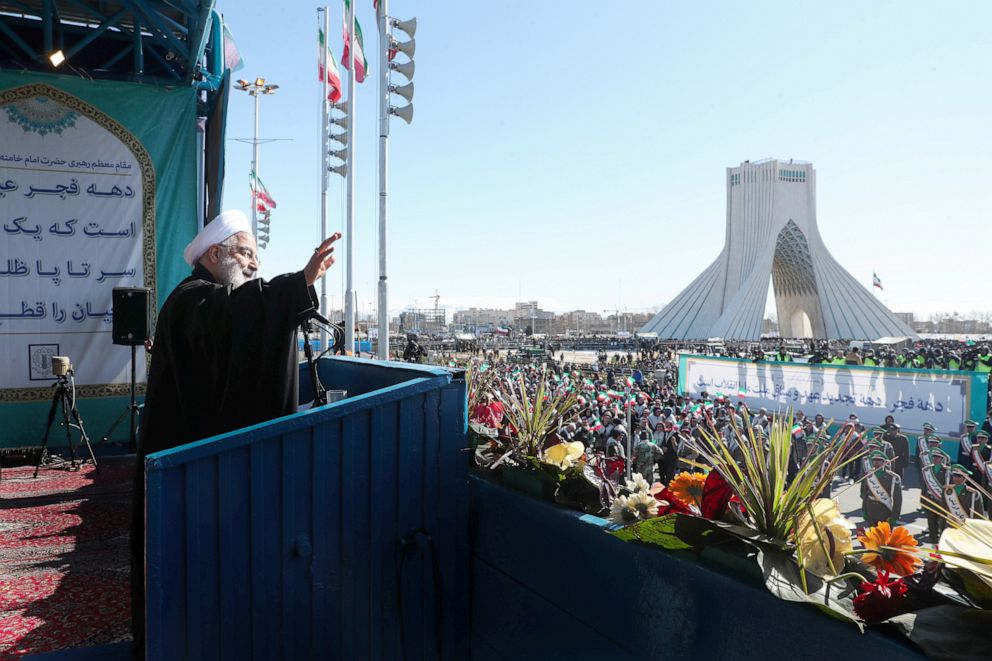
"The martyrdom of General Soleimani opened up the eyes of our younger generation to the political issues," said Sareh Mousavian 30, a housewife who had come to the march with her mother-in-law.
"It is our religious duty to defend our revolution, and we have to do it without America or any other country," she added.
Trying to combine the two strategies of "resistance" followed by hardliner parties versus "diplomacy" followed by reformists, Rouhani said the pathway is something in between the extremes.
"No to 'either resistance or diplomacy.' No to 'either interaction with the world or resistance.' No to 'either domestic self-sufficiency or trading with foreigners.' These are the samples of wrong dichotomies," he said.
Rouhani also said the system must embrace criticisms and freedom of speech, saying, "We might have criticisms over a decision. It is alright. There is no problem to disagree a decision. We must criticize, but we should not get passive and inactive."
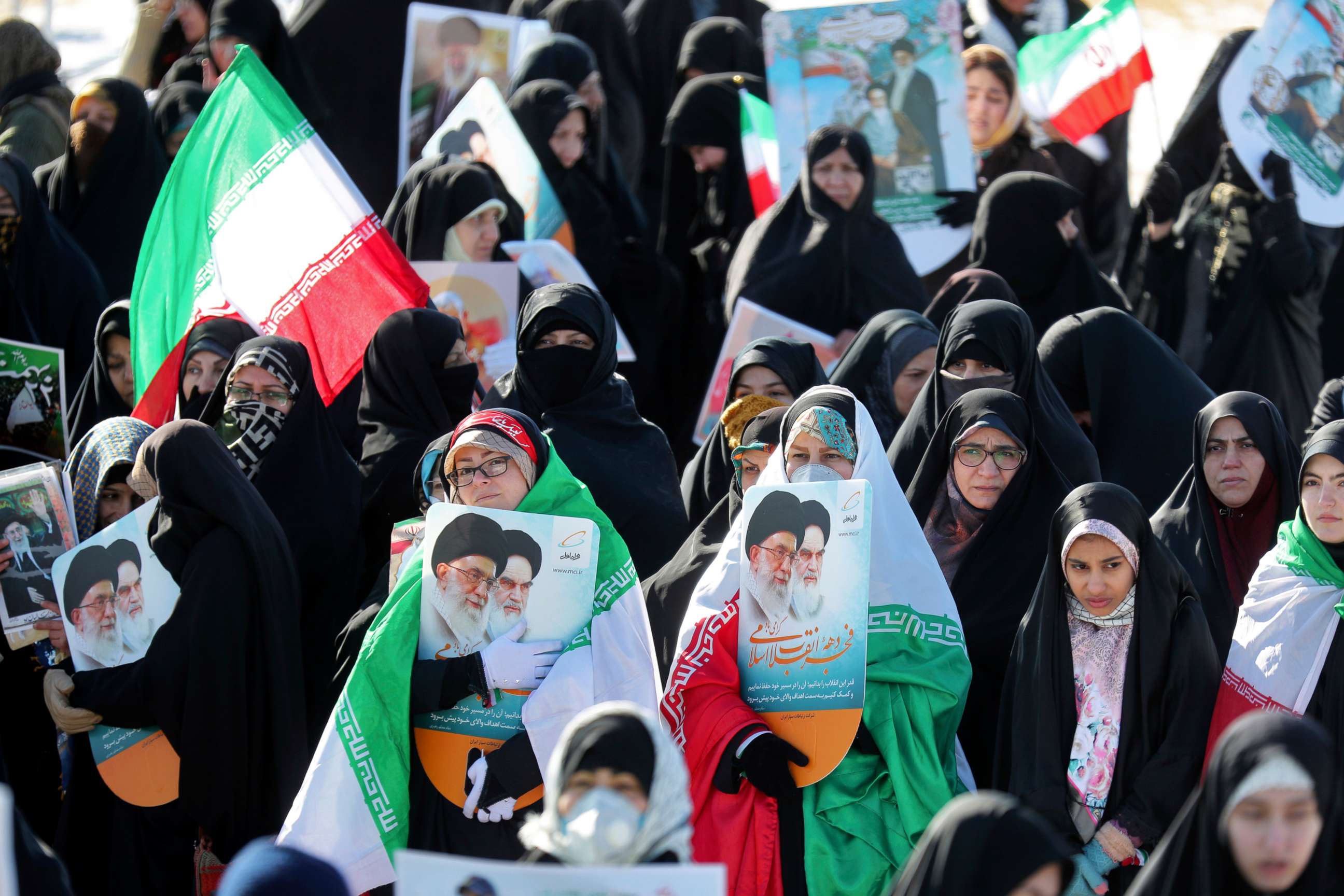
Rouhani's words were not welcomed by some, though.
"I did not attend the rally, because I think what the president said are just words. We have not forgotten the November protests. They would invite us to criticize, but if they do not like our criticisms, there is no guarantee to our safety," said a 36-year old government employee who did not want his name disclosed for safety reasons.
The government employee referred to a series of protests that broke out across the country last November over a dramatic increase in the fuel price. Unofficial reports mentioned different numbers from around 70 to over 300 and even 1,500 killed across the country in about a week of protests. Rouhani's administration has yet to provide clear statistics on the casualties of the protests.
"Whatever the president says is to pretend everything is OK. But we have decided not to forget. Even if we cannot do anything and we just keep ourselves busy with daily routine, we try not to forget what happened," the government employee said.




